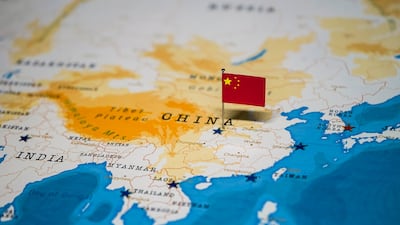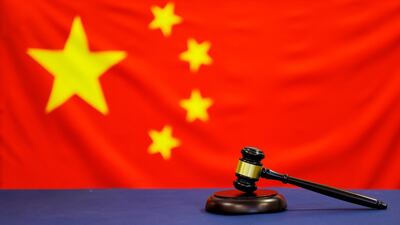Focus On Asia
Already one of the world’s largest pharmaceutical markets, China has tremendous growth potential, but significant policy and market changes are rocking the basis of competition. Multinational biopharma corporations cannot succeed in this new environment unless they fundamentally reinvent their business models to adapt to sweeping change.
Pipelines in bioconjugates continue to develop, from ADCs to XDCs, with radionuclide drug conjugates (RDCs) and antibody-oligonucleotide conjugates (AOCs) leading the expansion.
Interim results from the Phase III REMARK study presented at WCLC showed the Chinese company’s second-generation ALK/ROS1 inhibitor met its primary endpoint as a first-line therapy in ALK-positive advanced NSCLC.
Novartis’s APMA chief outlines the company’s tailored approach to deliver long-term outcomes, novel access solutions via innovative financing options and shape the CVD disease ecosystem in the extraordinarily diverse region. Partnering to build AI infrastructure is another key prong.
A court order encompassing funding, drug pricing, clinical trials and overall policy implementation aspects is expected to bring about a paradigm shift in the treatment of rare diseases in India. Sarepta, Roche and Sanofi are among the key players that have been part of pricing discussions.
The nod will help unlock a national market for the partners’ Dupert (fulzerasib) in which roughly 50,000 people are expected to be newly diagnosed with lung cancer harboring the KRAS G12C mutation in 2025. Meanwhile, two other homegrown rivals are also closing in on marketing clearances in China.
Amgen’s Imdelltra for small-cell lung cancer is one of two bispecific T-cell engagers approved for solid tumors, but data at the WCLC meeting show other DLL3-targeting BiTEs may be on the way.
An academic study of GLP-1 agonist showed promise in patients with the painful skin condition but with no signs that the Danish drugmaker will pursue the indication, smaller players in the space may be interested.
Learn more about how China’s biopharmas are going global by working with dependable and trustworthy companion diagnostics partners.
While Korean biopharma companies’ out-licensing deals have remained lackluster in the past couple of years, activity around emerging modalities, led by ADCs, have been increasing in line with global trends.
China's Duality Biologics, founded in 2020, has developed two-thirds of its clinical-stage antibody-drug conjugates by combining antibodies acquired from domestic peers with its proprietary linker-payload platform.
Indegene’s CTO talks to Scrip about the state of GenAI implementations in pharma amid hype and limited clarity on ROI, the need to address foundational issues early on, promising pilots, the firm’s alliance with Microsoft and Google’s generalist LLM for therapeutics.
Deal Snapshot: The Belgian company follows a tradition of Western pharma companies relying on local expertise to market their products in China.
After 10 years of promised investment following its Nobel Prize for iPS cell research, Japan is cautiously narrowing regulations around the conditional approval of cell therapies and cutting some reimbursement prices. Commercial success remains mixed and some products have been withdrawn from the market.
While Korean biopharma companies’ out-licensing deals have remained lackluster in the past couple of years, activity around emerging modalities, led by ADCs, have been increasing in line with global trends.
Serum Institute is working on an mpox vaccine while other Indian firms are weighing options after the WHO sounded an alert and a new case was reported in neighboring Pakistan. Scrip looks at factors that could favor development and/or manufacture of an mpox vaccine at Indian majors.
An employee of Astellas in China first detained 17 months ago on suspicion of espionage has been formally indicted and now faces trial.
Momentum in Europe may see the region’s contribution to Glenmark’s revenues become almost as big as the US business, currently dented by multiple challenges. The firm also outlines how things are poised in India for its biosimilar to Novo Nordisk’s Victoza.
Being the Chinese biotech’s backbone asset in the autoimmune disease area, telitacicept, a BlyS/APRIL dual targeting fusion protein, has hit its target in a China-only Phase III study in generalized myasthenia gravis. The candidate is also being investigated in global Phase III trials in systemic lupus erythematosus and Sjögren's syndrome.
Zydus has begun Phase I trials for an anti-properdin drug in India while its sitagliptin franchise in US, distinct from Merck’s Januvia and Janumet, looks promising. Meanwhile MD Sharvil Patel says a biosimilars entry in developed markets is possible if certain conditions are met.


![Spotlight On RDCs, AOCs As Leading Novel Bioconjugates[Updated]](https://web.insights.norstella-labs.com/resizer/v2/3M7ZAWZOBNK7NG4A4WDOIFG6DU.jpg?auth=392a1fdb3cfacb29445720c412410e598dbcc5f90f14857652cd498bd0faa0fb&width=400)













